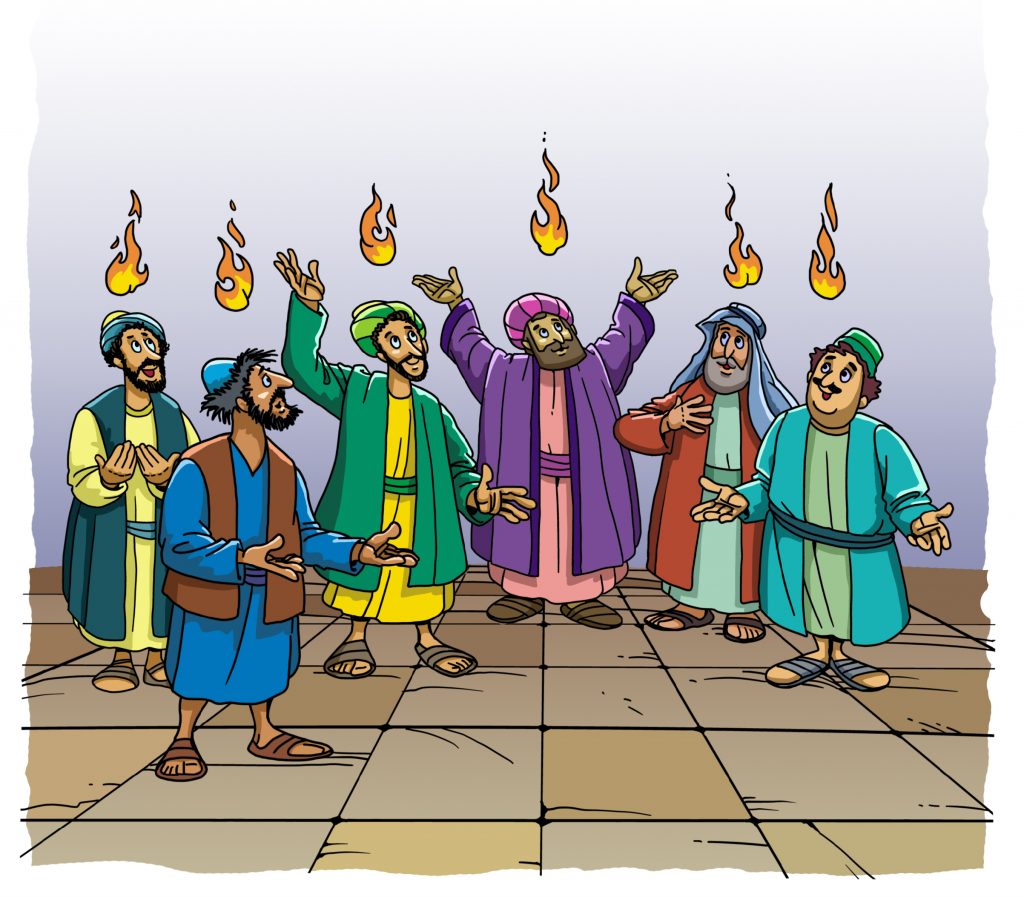
Reflection for Pentecost Sunday
The Spirit of God is our Advocate and our Helper, breathing life into the love that is faithful, selfless and compassionate. It is the underlying energy of mutual responsibility, the soul that builds the kingdom, the core of meaningful existence. Without the Spirit, the universe may have simply been a symphony of chaos and utter disorder, worlds and creatures engaged in a never-ending destruction of the other, a cosmos of death. The Spirit is love and life everlasting.
The Spirit reveals the love of the Father, giving light to the mysteries and wonderful hidden truths about our salvation and about our inevitable return to him. The Spirit guides us to the teachings and example of the Son and to the proper response to God’s call to love; only through the help of the Spirit can we willingly and freely obey God, because such obedience is possible only with understanding.
Through the fruits of the Son’s divine love in his human sacrifice, we as sinners are supernaturally reconciled by the Spirit to itself. And to keep us in his grace, the Spirit fortifies and supplies whatever is lacking in our imperfect resolve to fulfill God’s will, helping us to resist the temptation to see the world only in our own terms, keeping us committed to a lifelong renewal of ourselves from selfish inclinations and pursuits, in order for the giving of love to persevere forever.
In an intimate gesture of devout companionship, the Spirit has chosen to dwell in each of one of us, enveloping our whole being such that we though in full possession of ourselves, are also possessed by it. For how else may we truly love and forgive those whom we despise and those who despise us? For how else can we serve those who cannot pay it back? For how else will we throw ourselves in total abandon to an uncertain future for him who seems to be too silent? Thus, we must be careful not to corrupt our being, for why should we misuse, abuse or use for ourselves that which no longer belongs to us?
It is the Spirit that impels us to share in suffering, to share in the sufferings of our Lord and to share in the sufferings of others. It is the Spirit who joins us in the sorrow of our problems at home, in school or at work; in the anguish of our constant need for money; in the angst of what tomorrow will bring; in the torment of envy, slander and hatred from the hands of those who oppress us; in the misery of forgotten visions and unfulfilled dreams.
But it is also the Spirit who leads us in joining in the tribulations of others, in bearing the fruit of justice and peace through an unwavering and unceasing ministry to the wounds of humanity. The Spirit clarifies the way we must view others in spite of our own personal trials, not as hindrances to our welfare nor as objects we can use for our ends, but as fellow brothers and sisters valued by a loving and caring Father, whom we must love and care for as well. The Spirit strengthens us to bear their shortcomings, aware that we have our own shortcomings; to serve them with more kindness, dying to ourselves, knowing that our Lord died for them too. It is the Spirit who recalls for us that we have become children of the loving Father, and that sharing in such suffering will culminate in a sharing in the eternal glory of his kingdom.
It is through the Spirit that each one of us receives a gift that enables us to perform our respective service, with the sole intent of making known the love of God for them, and consequently bringing them closer to the Beloved. The Spirit is the source of these many different gifts, making the whole body of the Christ responsive to different needs at different times. Though we may then naturally differ in approaches to resolving the problems of the human condition, it is the same Spirit that directs us to the course of dialogue and concerted action, founded on a common and genuine concern for a sustainable future. Thus, the Spirit is both the cause of diversity of as well as the force unifying all peoples of goodwill.
Consider how countries compete for more political power to gain better positions from which they can effectively defend only their interests. Consider how nations almost always choose to prepare for war so that they can allegedly deter it, while giving much less priority to the problems that affect millions regardless of race or creed: hunger, homelessness, sickness, lack of education, immorality, crime, lack of trust, cynicism, alienation, abandonment and despair. Consider how we have consistently given much less importance to the option of dialogue, which is always interpreted as “weakness” or “cowardice.” Consider how some companies are already more influential than countries, determined to win the race for the accumulation of more capital, so that more economic advantages are gained at the expense of those who have less, thereby increasing the gap between rich and poor. Consider then, where we have brought so-called “modern civilization,” a fragile fortress slowly succumbing to the foolishness of its own pride and prejudices.
Is it not time we simply trust in the goodness of God, and follow the promptings of the Spirit?
Brother Jess Matias is a professed brother of the Secular Franciscan Order. He serves as minister of the St. Pio of Pietrelcina Fraternity at St. Francis of Assisi Parish in Mandaluyong City, coordinator of the Padre Pio Prayer Groups of the Capuchins in the Philippines and prison counselor and catechist for the Bureau of Jail Management and Penology.
The views expressed in this article are the opinions of the author and do not necessarily reflect the editorial stance of LiCAS.news.
Source: Licas Philippines
0 Comments